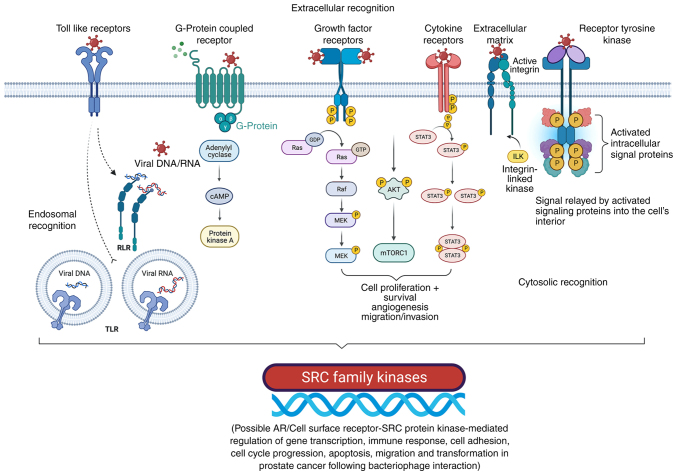Figure 5.
Cell surface receptor-mediated interaction with bacteriophages is associated with SRC family kinases involved in cancer progression, gene upregulation, and other cellular events. Bacteriophages may interact with various cell membrane receptors. Cell surface receptors, such as Toll-like receptors, G-protein coupled receptors, growth factor receptors, cytokine receptors, extracellular matrix (e.g., integrins), and receptor tyrosine kinases could be involved in phage interactions with cancer cells and are responsible for the extracellular recognition of bacteriophages. Following different routes of internalization (e.g., endocytosis), bacteriophages appear to have endosomal recognition. In addition, cytosolic recognition of bacteriophages within cancer cells after degradation/decay of the phage proteins and the genome (DNA/RNA) is possible. Adapted from ‘Non-phagocytic Nanoparticle internalization pathways’, by BioRender.com (2022). Retrieved from https://app.biorender.com/illustrations/62e7f61bf2dd732bb630d9eb. P, phosphate group; AR, androgen receptor; ILK, integrin-linked kinase; TLR, toll-like receptors.

